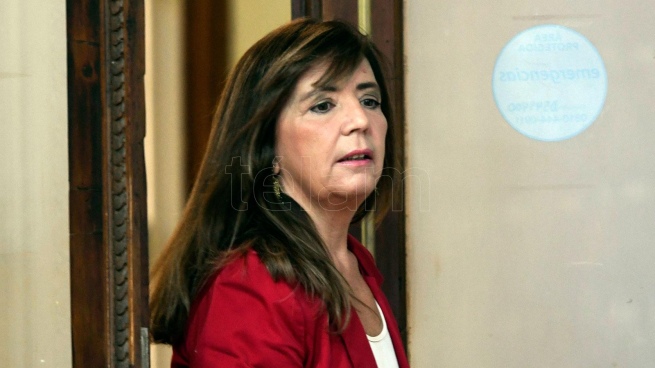The spokeswoman for the Presidency, Gabriela Cerruti, stated this Thursday that inflation in April will be “slightly lower” than the 6.7% registered in March, although she warned that “this does not mean that it will cease to be a problem” with the one who is going “to have to continue dealing all year”, while pointing out that “The government is focused on sustaining growth and that it be with redistribution.”
In his usual weekly press conference, Cerruti highlighted the implementation of the registration process for the collection of income reinforcement established through the decree 216/2022 published this Thursday in the Official Gazette, while relativizing the comments of the Minister of Development of the Community of the province of Buenos Aires, Andrés “Cuervo” Larroque, about the head of Economy, Martín Guzmán.
He also reiterated that in the Palacio de Hacienda is still studying the characteristics that the unexpected income tax project will have, in addition to reiterating that it will include “a very small group of companies.”
“We understand, according to March inflation, that in April it should be a little lower,” Cerruti said, although he did not release an estimate of a percentage of the Consumer Price Index (CPI) for the current month.
The National Institute of Statistics and Censuses (Indec) will release April inflation next Thursday, May 12.
Despite the estimate of a reduction in the index, the spokeswoman clarified that “this does not mean that it is no longer a problem that we are going to have to continue dealing with throughout the year.”
The official reviewed the evolution of a series of economic variables in the first quarter of the year, such as the growth of activity, the reduction of the deficit and also of the exchange rate gap.
“All these variables point to (April’s inflation) going to be a little lower” than March’s, he explained.
Inflation in March was 6.7%, the highest monthly record in the Presidency of Alberto Fernándezwith a first quarter of accumulated increase of 16.1% and an interannual index of 55.1%.
Among the chapters that led the increases last month, Education stood out, with 23.6%, followed by Clothing and footwear (10.9%) and Housing, water, electricity, gas and other fuels (7.7%) , due to the incidence of the adjustment of public utility rates.
Food and non-alcoholic beverages, the item with the highest weighting in the CPI, closed the month with an increase of 7.2%.
In another order, Cerruti recommended having “patience” to those who want to manage the $18,000 income booster, since due to the influx of interested parties “the page may fall” from the National Social Security Administration (Anses) and that they have to enter twice” to complete the form.
On the other hand, when referring to Larroque’s comments on Guzmán, of whom she said that “no one had voted for him”, the spokeswoman limited herself to pointing out that “they are opinions, we take them as opinions and we do not comment on opinions”.
“The government is focused on sustaining growth and that it be with redistribution, we are working on that,” remarked.
Finally, in defense of the Unexpected Income Tax project, he brought up a similar initiative taken by the Italian Government with companies in the energy sector.


















